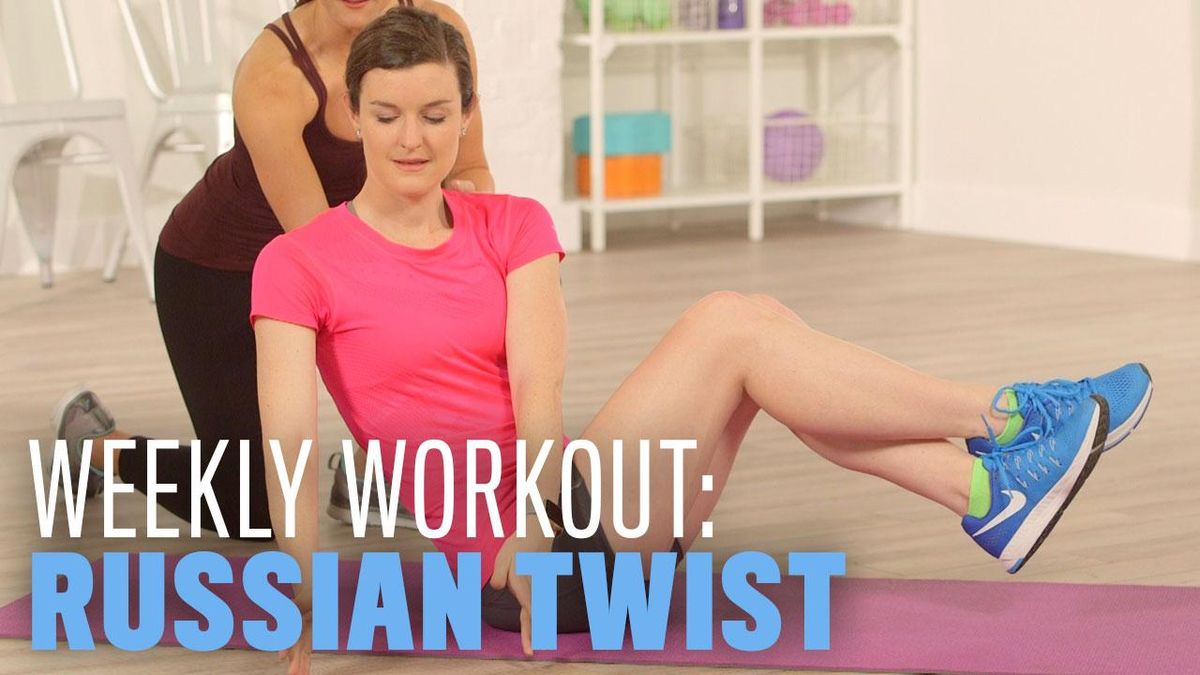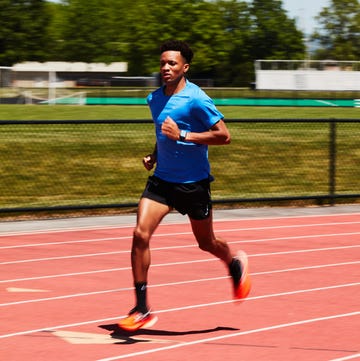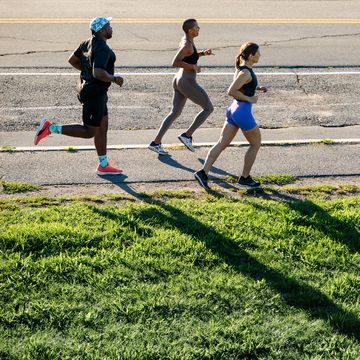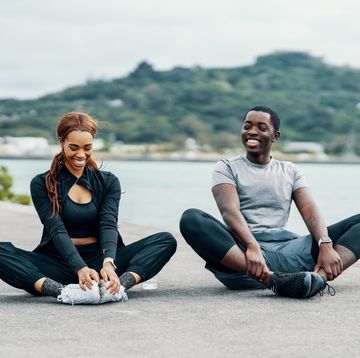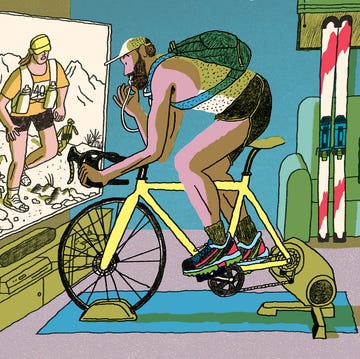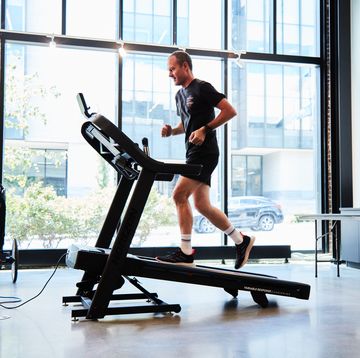You go to the track to do six 800-meter repeats. On your first one, you’re a little slower than planned. You tell yourself not to worry, because you usually feel better on the second repeat of a workout. But then your second 800 is slower than the first. On your third 800, you push hard, yet you finish even slower.
Should you finish the workout as best you’re able? Switch to a different workout? Or will you ultimately be better off by cutting it short?
Perhaps the two most pertinent words in running are “it depends.” That’s certainly the case when it comes to deciding what to do when a workout is going poorly. Here are nine things to consider to help you choose wisely.
1. What is the purpose of the workout?
Knowing what you’re trying to achieve “is critical for the runner to know ahead of the workout,” says Greg McMillan, who has coached everyone from beginners to 2:10 marathoners. Having a goal of “running hard” isn’t enough. Are you trying to practice running at a certain pace? Or are you trying to accumulate a certain volume or duration of work at a given effort level, such as VO2 max or lactate threshold?
“When you can say what the stimulus should be from the day’s workout, then you have a starting point for deciding what to do if the workout isn’t going as you hoped,” says Pete Magill, author of The Born Again Runner and holder of three American masters records.
Take, for example, the workout of six 800-meter repeats cited above, in which each repeat gets slower. “If the purpose is goal-pace practice, then running slower is not good at all, and the workout should be stopped immediately,” says McMillan. “If the purpose is to boost VO2 max (aerobic capacity), then it’s okay to keep going as long as the effort is appropriate.”
In the second, more common scenario, where running at a certain effort is the goal, consider not timing your remaining repeats. Simply focus on maintaining an equivalent perceived exertion level. If you do time the rest of the workout, and find you’re still slowing by a couple of seconds per lap, “chances are you’re not ready to do that workout and it might be time to pull the plug,” Magill says.
TRAIN WITH RW: Plans for every distance (and every runner) in 3 easy ways!
2. Is your workout goal realistic?
You might be ready to do a good workout, but you might sabotage that possibility because of overly ambitious expectations.
When you’re struggling to hit workout times you think you should be able to hit, “generally it is because the paces are unrealistic, or they are unrealistic in the context of what other stuff you've loaded onto your plate surrounding the workout,” says Lauren Fleshman, who won two national 5,000-meter titles during her professional running career and now coaches Oiselle’s Little Wing team.
If you’re doing a workout at goal race pace, it’s unrealistic to think you can always run that pace in training—by definition, it’s not a pace you’ve recently held for the duration of a race. Even if you have recently run a certain pace for a race, you shouldn’t expect to be able to produce at it will in workouts, says Magill.
“Your race times often don’t pertain to workouts,” he says. “For your races, you’re rested, and you run the max you’re capable of on that day. That’s usually not the case with a workout in the middle of the work week. So you shouldn’t expect to come to those workouts with the same capabilities.”
3. Can you benefit from breaking the desired volume into shorter chunks?
McMillan will sometimes have runners try to hold the desired pace for shorter repeats, such as 600 meters, or even 400 meters, instead of 800 meters. “Adjusting the workout allows you to get a good workout in that day and avoids the mental outlook that you ‘failed’ the workout,” he says.
Magill cautions against shortening VO2 max repeats too much, because it can take the first minute or longer of a repeat at that effort level to reach the right intensity level. “If you couldn’t hold the pace for 800 meters and switch to 400s, then you’re only hitting the VO2 max stimulus for the last little bit of each 400 before you take a recovery jog,” he says.
Magill is okay with breaking a tempo run that isn’t going well into shorter segments, such as 10 minutes at tempo effort with a 2- or 3-minute recovery jog between.
4. Can you switch to a different type of workout?
If your initial pace goal was too ambitious, you might struggle to hit the right effort level for the rest of your planed workout because you “went anaerobic and aren’t clearing the lactic acid during the rest intervals,” Fleshman says. “One sign of this is tingly arms early in the workout.” In that case, "I'd just finish with a 10-minute tempo run and call it a mixed session,” she says.
If you didn’t start the workout too quickly but are still having a hard reaching the desired effort level, you’re probably not ready to provide a proper stimulus to that energy system, says McMillan. In that case, “we might change the purpose of the workout and try to hit a different energy system,” he says. “If we can’t do VO2 max repeats, why not do a few lactate-tolerance repeats—maybe 6 x 200 meters fast—and call it a day? We get good speed training but don’t run up against the fatigue issue we’re seeing in the 800s.”
Magill says that if you switch to a different type of hard running and find that you’re still struggling, “then your nervous system is tired, and you’re not ready for any type of hard workout, because if you fry your nervous system, it could take you 10 or 11 days to recover.” In that situation, it’s time to end the workout.
5. Are outside factors affecting your workout?
One consideration here is weather. If your primary goal is running at a specific pace and the weather is preventing you from doing so, save the session for a more conducive day, McMillan says. If you’re going mainly by perceived exertion, you can produce the desired effort level in almost any conditions. The worse the weather, the less you should gauge your success by the stopwatch.
But outside factors can also mean things from your non-running life, such as poor sleep, a family or work crisis, or a meal that didn’t agree with you. Be realistic about how such things affect you. If the effect is enough to prevent you from keeping a pace you’ve been able to run in other recent workouts, switch to an effort-based session.
Another possibility is that you’re in the early stages of sickness. “If you suspect the body is fighting something, I'd bail as early as possible,” Fleshman says.
6. Are you having a specific bodily pain?
If you’re having biomechanical issues, stop the workout. That includes not only something like sharp pain in your knee or a lower-back spasm, but also a “twinge that affects your ability to maintain your stride,” Magill says.
Soldiering through will increase the chances of the issue becoming a full-blown injury that will cost you a lot more fitness than doing three fewer repeats will bring you. This is especially the case for masters runners, who tend to take longer to recover from training-error-induced injuries.
7. How should you train on subsequent days?
Regardless of whether you finished the original workout, altered it, or cut it short, a sub-par session is a sign you need to be careful in the following days so that you don’t dig a deeper hole.
“Unless there is a really clear issue why you didn’t feel good, it usually means you’re under-recovered, and adding in more recovery in the following days is smart,” McMillan says. “Most runners get fully recovered after two to three days of recovery, whatever that means for that runner—off, cross-training, and/or lower volume and slower runs.”
Resist the urge to try to make up for lost time by rushing back to the track the following day. “There’s a reason the workout went bad,” Magill says. “You can’t just pretend it didn’t happen.”
If your workout went south because of unrealistic pacing, or if you switched to a different type of workout, “just move on with the rest of the week as planned,” Fleshman says. “You got some good work out of it, even if it wasn't the original plan.”
8. Is this bad workout part of a pattern?
All runners have bad workouts on occasion. Whether your most recent one is cause for concern depends significantly on how the rest of your training has been going.
“My experience has been that most runners will experience up to three bad days in an 8- to 12-week training cycle,” McMillan says. “These are just the weird who-stole-my-fitness days where you have no idea why you feel bad. More than that, and I find it’s a recovery issue. Some of this could be the training sequencing, and some could be other controllable factors, such as nutrition, hydration, sleep, and mental state.”
Fleshman says that more than seven to 10 consecutive days of being unable to meet your training goals when you’re not ill could mean overtraining syndrome “or adrenal fatigue from a mix of training and life/work stressors. All stress comes from the same well, so even if you feel you should be able to handle the training load based on past training experience, look at your life to see if anything is different that could be depleting you,” she says.
9. Are you at risk of developing bad mental habits?
One reason runners finish bad workouts is that they’re afraid it will be easier to give up in subsequent workouts, or even races. Unless you know you simply gave up during the workout, don’t get flustered by having to change or abandon a hard session.
“Pros adjust workouts all the time,” McMillan says. “They realize that there is an ebb and flow to the body and the training plan, and that adjusting is the best way to optimize the training. I would hope that runners know the difference between wimping out in a workout and when the body/mind/conditions just aren’t conducive to the goal of the workout and is therefore counterproductive.”
“If you bail out of fear of failing, that carries over into racing,” Fleshman says. “If you bail because you listen to your body, you gain confidence in your ability to listen to your body.”
Showing the wisdom of a master in two senses of the word, Magill says, “I’ve never regretted cutting a workout short, but there are many times I’ve screwed things up by finishing a workout I shouldn’t have.”

Scott is a veteran running, fitness, and health journalist who has held senior editorial positions at Runner’s World and Running Times. Much of his writing translates sport science research and elite best practices into practical guidance for everyday athletes. He is the author or coauthor of several running books, including Running Is My Therapy, Advanced Marathoning, and Meb for Mortals. Scott has also written about running for Slate, The Atlantic, the Washington Post, and other members of the sedentary media. His lifetime running odometer is past 110,000 miles, but he’s as much in love as ever.

